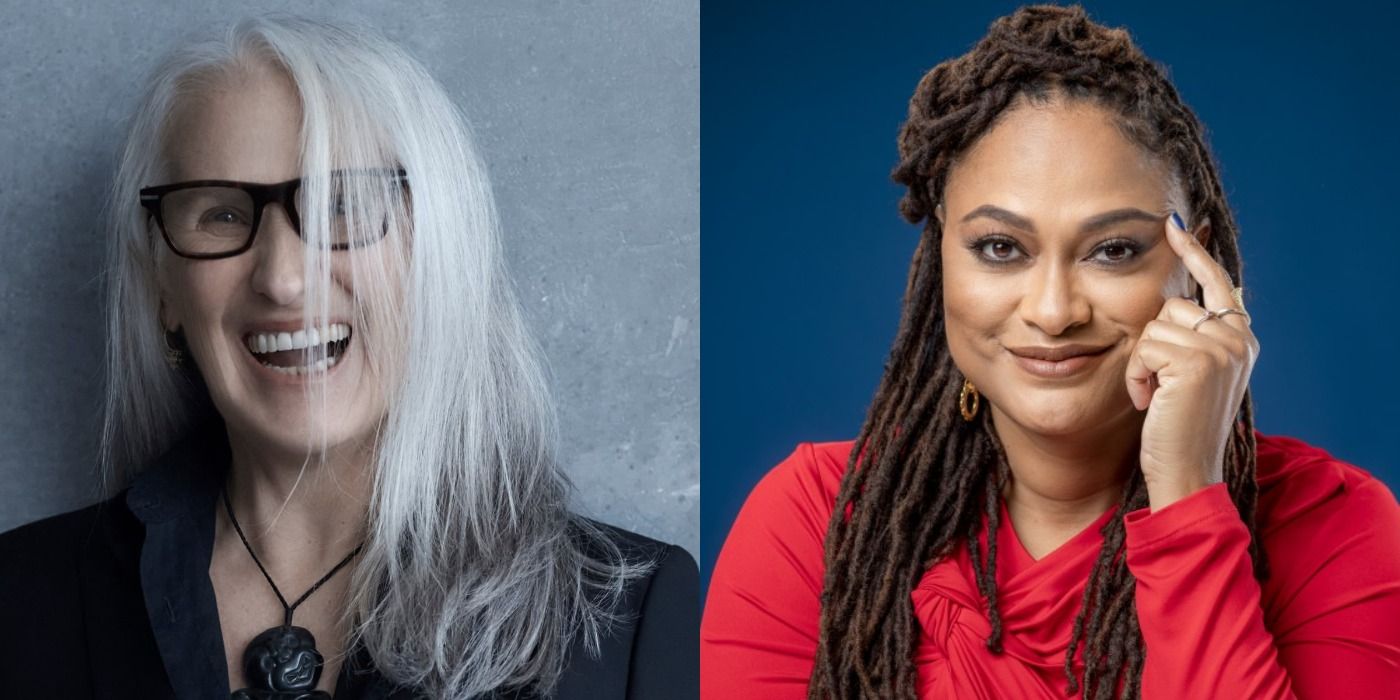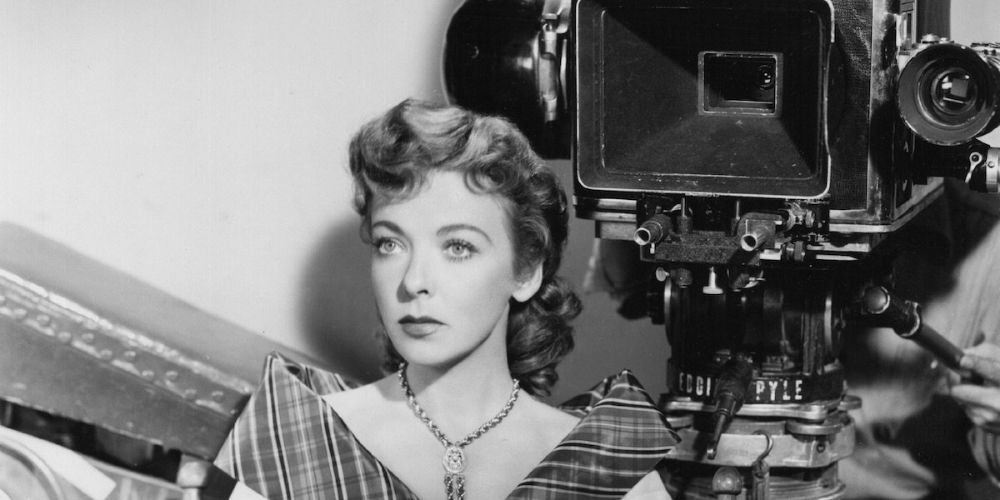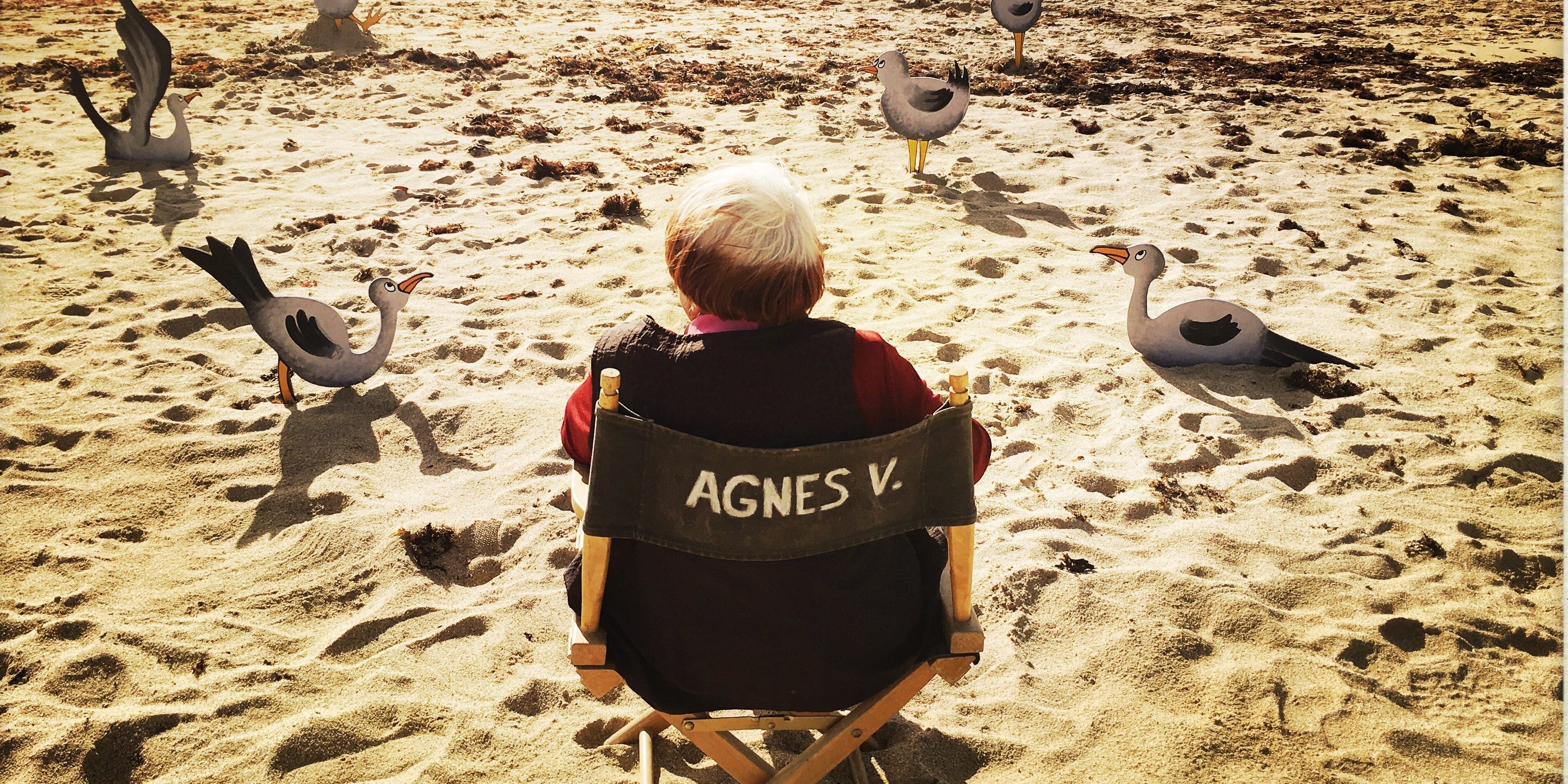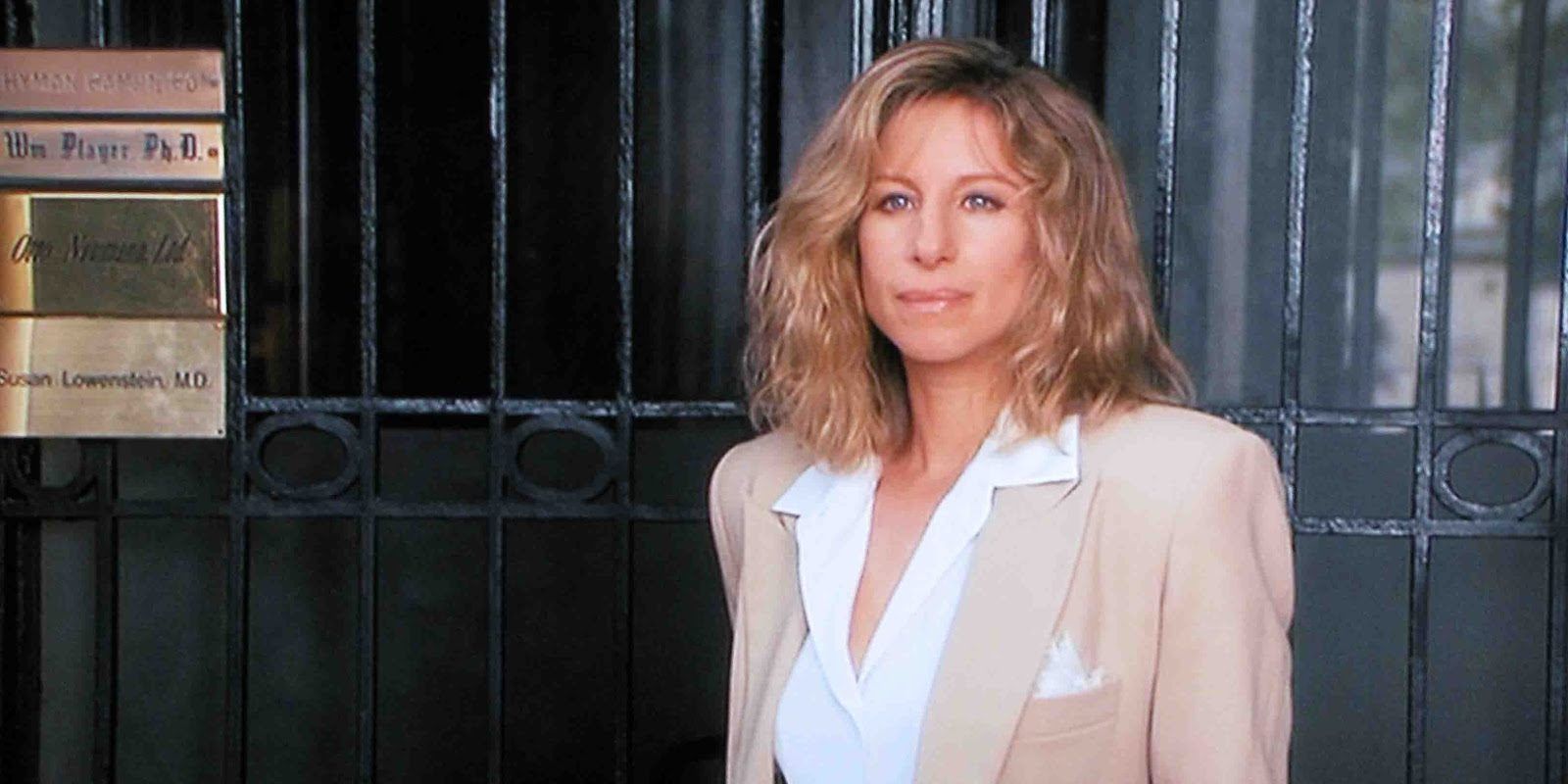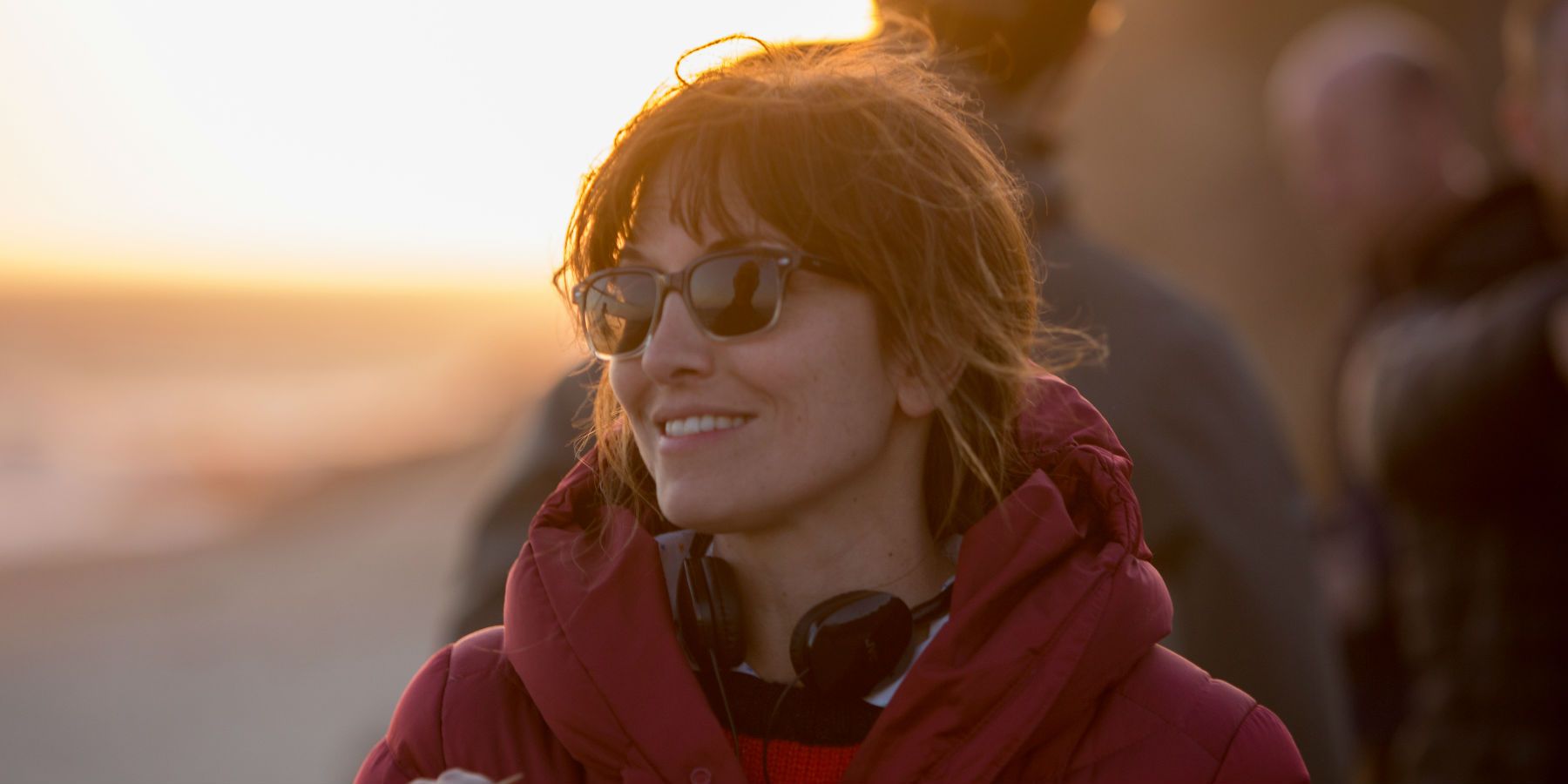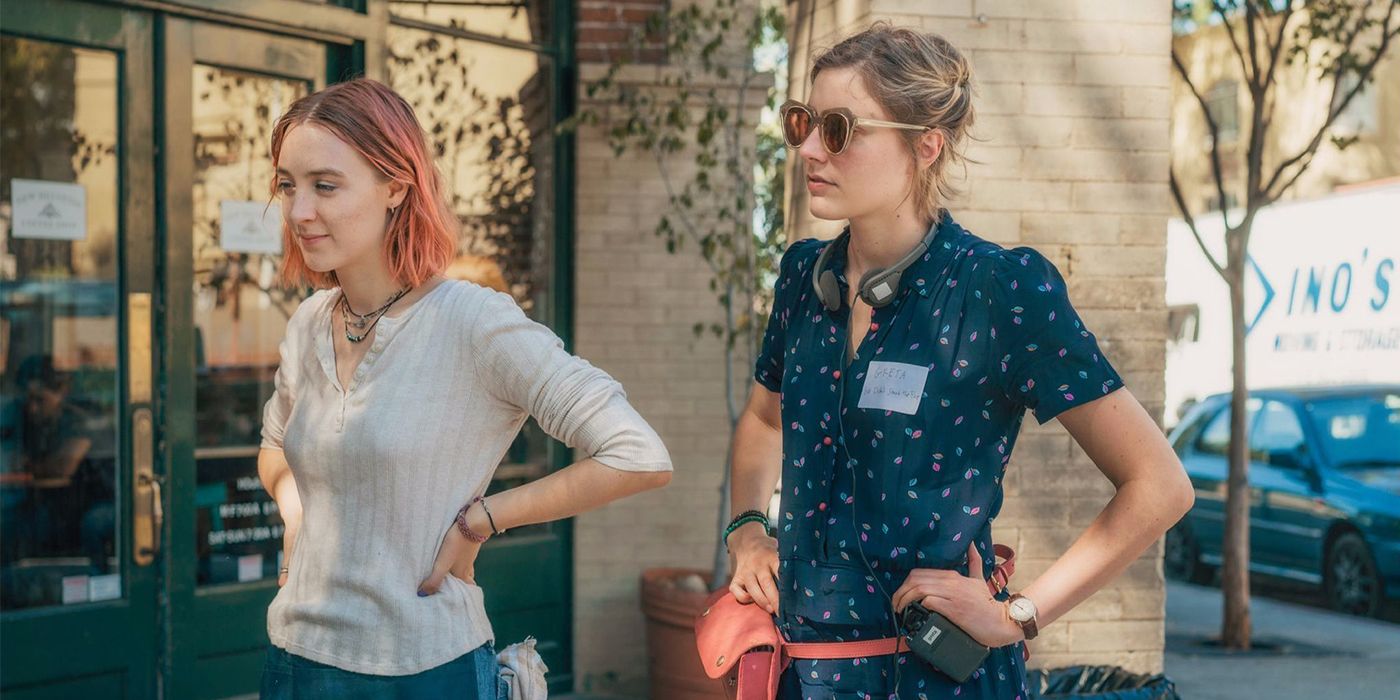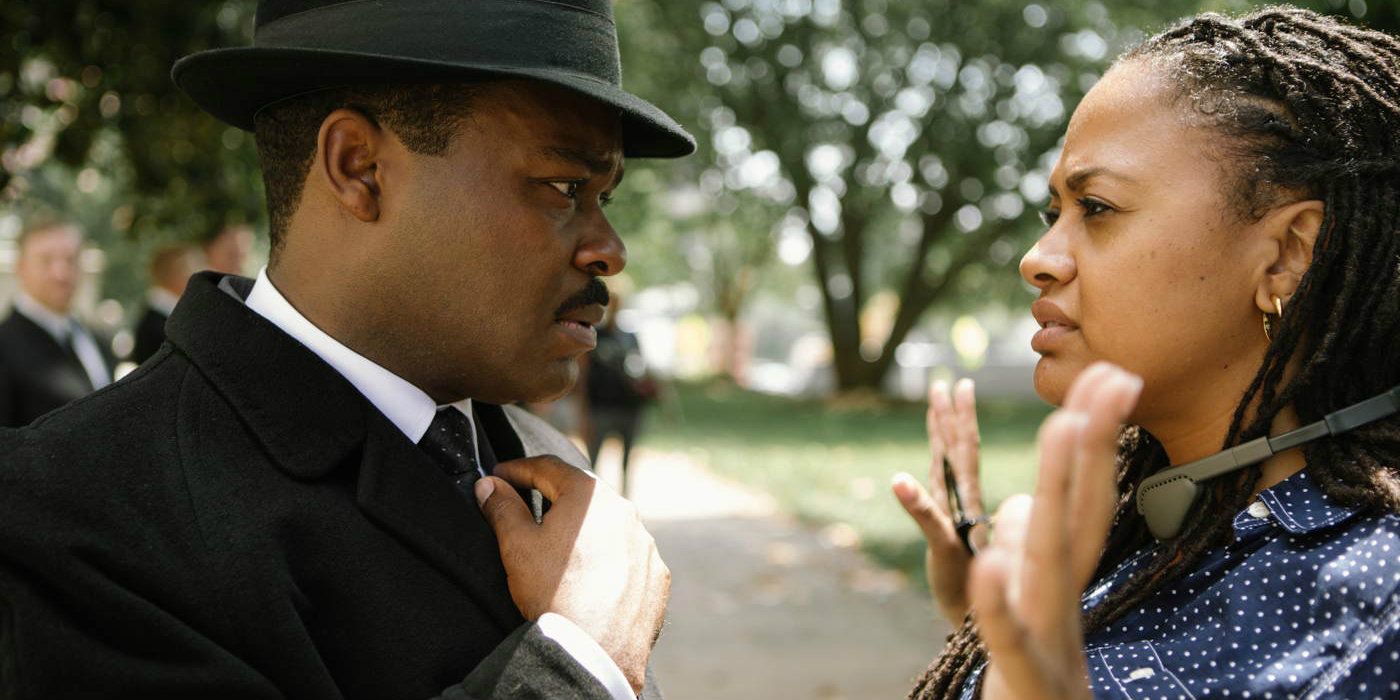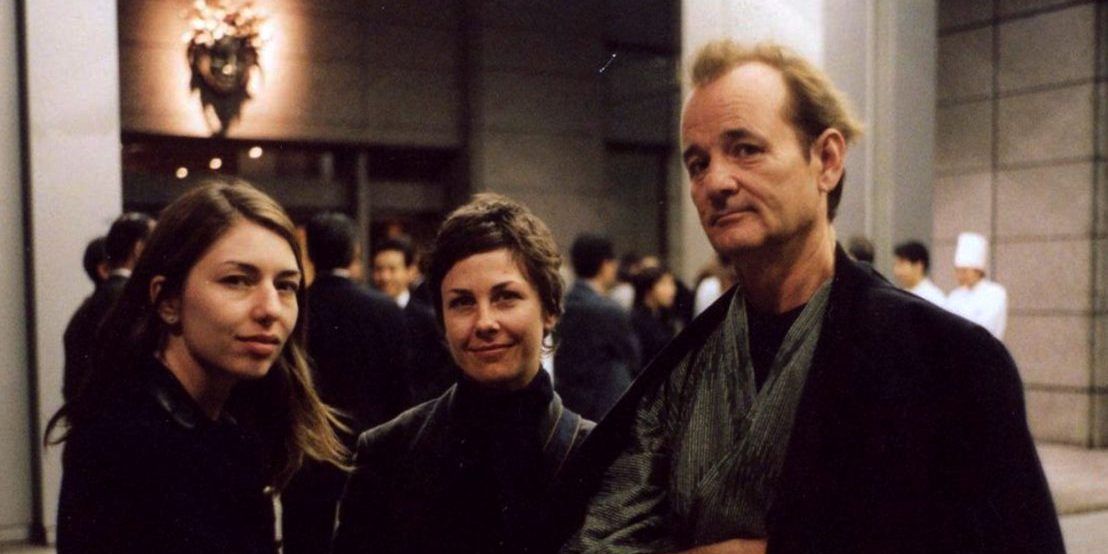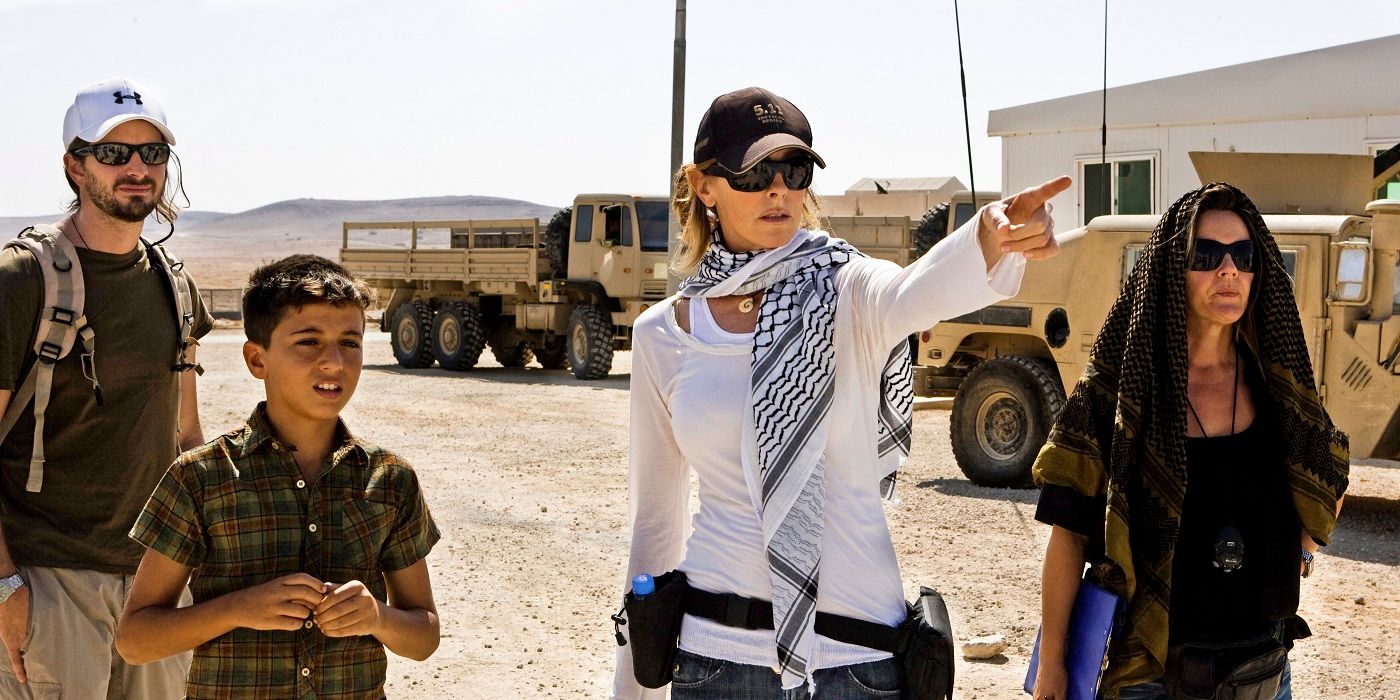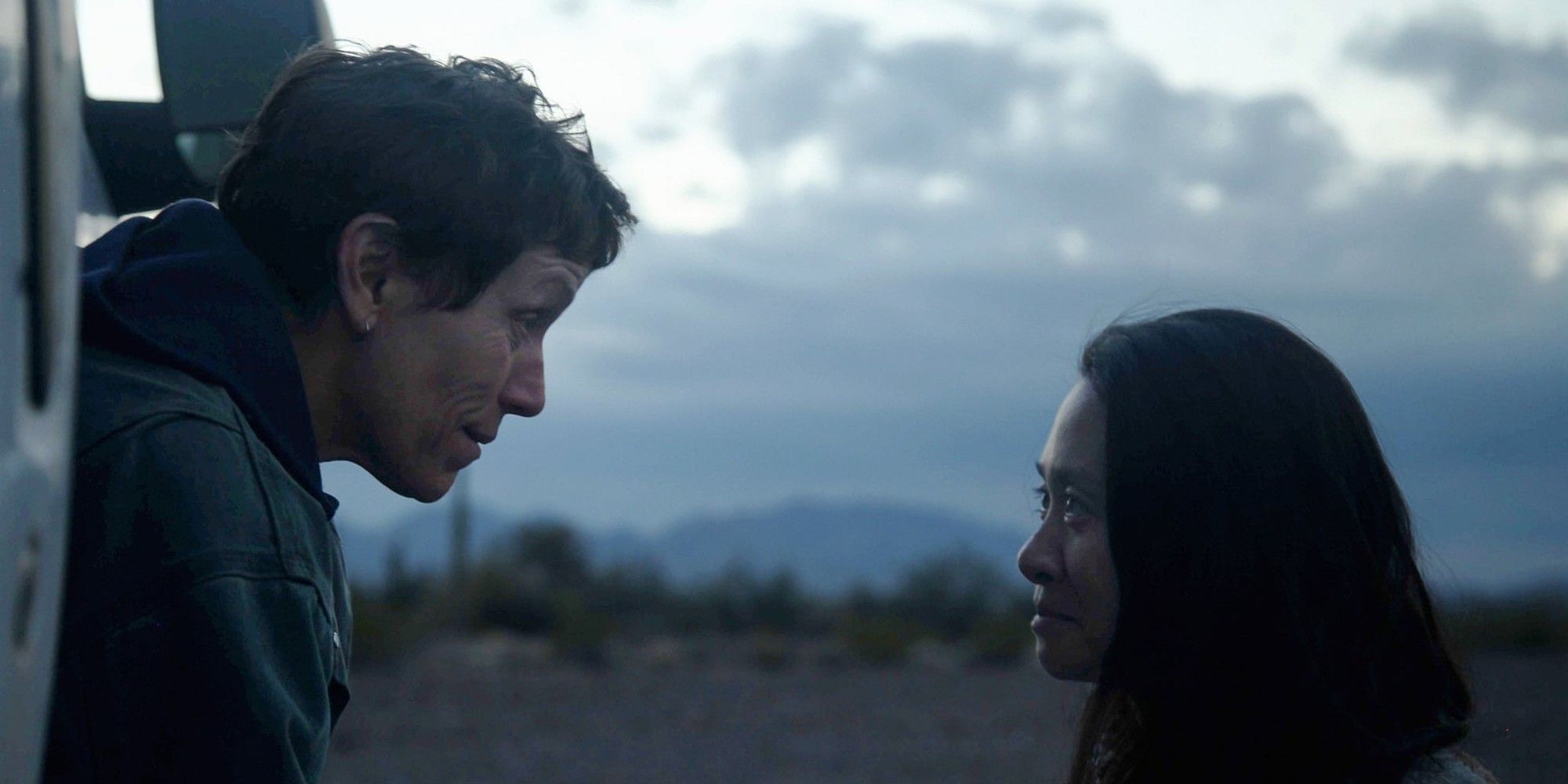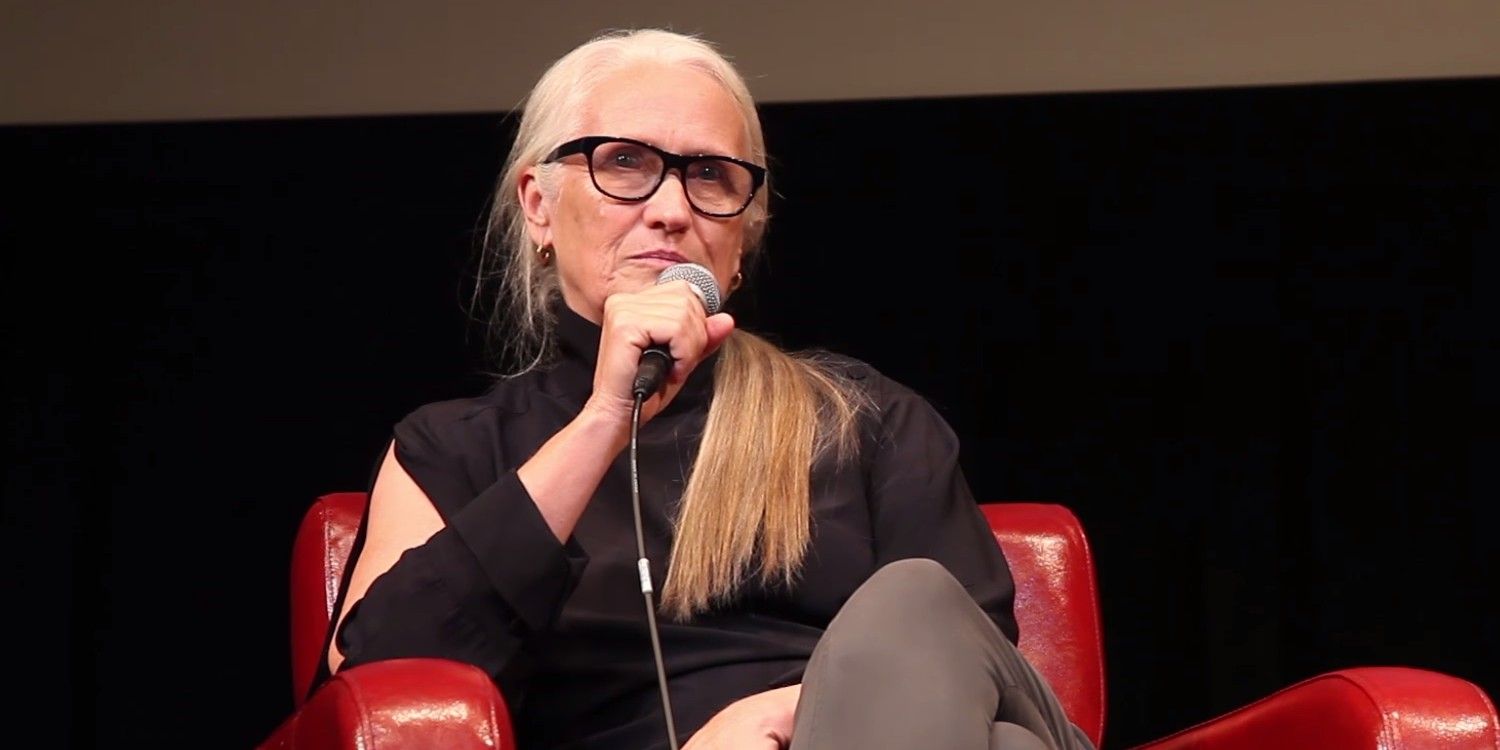Female directors have been enthralling audiences since Hollywood's Golden Age. Ida Lupino managed to have a consistent directorial career at the height of the studio system, paving the way for many female filmmakers to come. However, it's undeniable that the gap between male and female directors is still absurd, especially considering the sheer amount of female talent behind the camera.
Throughout their careers, these women have directed some incredible films that will surely stand the test of time. And while their body of work speaks for itself, they, like any other director, have one particular project that stands out as their most iconic.
Ida Lupino - The Hitch-Hiker
Ida Lupino began her acting career in the 1930s and starred in several high-profile movies during the 40s, most notably High Sierra and The Hard Way. By the end of the decade, dissatisfied with the roles that came her way, she chose not to renew her contract with Warner Brothers and started an independent studio with her husband, Collier Young.
After directing a couple of movies, Lupino became the first woman to helm a film noir with 1953's The Hitch-Hiker. Now considered a masterpiece of the genre, The Hitch-Hiker displays Lupino's greatest gifts as a director. She could find the extraordinary in the mundane and dared to tackle taboo issues, including rape and bigamy. Lupino's success at the height of the studio system paves the way for possibly every future woman director, even if her contributions remain largely underrated.
Agnes Varda - Cléo From 5 To 7
Once described by Martin Scorsese as "one of the gods of cinema," Agnes Varda is a cinematic institution. The French director, famous for her overly-realistic yet experimental approach to filmmaking, was instrumental in developing the French New Wave movement of the 50s and 60s.
Varda's films take a documentarian approach, often at the expense of narrative. One of her most widely recognized films, Cleó From 5 to 7, follows a young singer as she awaits from 5 to 6:30 for the results of a medical test. Imbued with a latent sense of dread, the movie is a massive existentialism question, a slice-of-life piece that proves the most meaningful moments in life happen every day, every time.
Barbra Streisand - The Prince Of Tides
Barbra Streisand was one of the original pop stars who transitioned to Hollywood. She won the Oscar for her big-screen debut, 1968's Funny Girl, and remained a major box office draw thanks to films like What's Up, Doc? and The Way We Were.
Streisand first ventured into directing with her 1983 passion project, Yentl. However, her most celebrated directorial effort came in 1991 with The Prince of Tides, in which she stars opposite Nick Nolte. The film veers dangerously close to melodrama at times, but Streisand's direction guided the film assuredly, all while coaxing one of Nick Nolte's best performances.
Lorene Scafaria - Hustlers
Following a long career as a writer dating back to the early 2000s, Lorene Scafaria made her directorial debut with the sci-fi rom-com Seeking a Friend for the End of the World, one of the best movies about a planet-destroying comet. She followed it up with The Meddler but would earn her biggest success with 2019's Hustlers.
Starring Constance Wu and Jennifer Lopez, giving the performance of her career, Hustlers encompasses all of Scafaria's strengths as a visual storyteller. The film is sleek and visually striking while still being clever and tremendously sympathetic to its characters. Hustlers rises above other films in the heist genre with a distinctive approach guided by Scafaria's thought-provoking insights into female relationships.
Greta Gerwig - Lady Bird
Like other female directors, Greta Gerwig began her career as an actress, earning acclaim for her performances in films like Frances Ha and 20th Century Women. However, she achieved international acclaim as a director thanks to her debut effort, 2017's Lady Bird.
Starring Saoirse Ronan and Laurie Metcalf, Lady Bird is one of the best directorial debuts of the 2010s. Deeply personal and refreshingly insightful, Lady Bird plays to Gerwig's strengths as both writer and director. She achieves a balance between word and delivery that even experienced directors struggle with, crafting an ode to adolescence that rings true, especially in the nostalgia-driven 2010s.2
Ava DuVernay - Selma
Ava DuVernay has a rich filmography in film and television. She became the first Black woman to claim the directing award at Sundance for her second directorial effort, Middle of Nowhere, but her third film, Selma, elevated her to the A-list and cemented her as one of the most promising filmmakers of the new millennium.
Selma earned raves for DuVernay's assured direction and star David Oyelowo's performance. Richard Roeper's review on The Chicago Sun Times perfectly summarized the film, calling it "a history lesson that never feels like a lecture." Moreover, the film showcases the story's emotional impact without shying away from the brutality inherent to it, resulting in a deeply moving evaluation of how far society has come and how long it still has to go.
Sofia Coppola - Lost In Translation
Being part of a filmmaking dynasty can be daunting. Sofia Coppola's father, Francis Ford Coppola, was the man behind The Godfather Trilogy; to the eyes of Hollywood, she had big shoes to fill, especially after making less than a stellar impression with her acting in The Godfather Part III.
Luckily, Coppola found her voice in directing. Her debut film, The Virgin Suicides, confirmed her as a promising talent, but Lost in Translation turned her into a respected director. The film is a quiet and comically emotional exploration of aging, identity, and love, enhanced by the never-better duo of Bill Murray and Scarlett Johansson. Coppola won the Oscar for Best Original Screenplay and earned a nomination for Best Director, and has kept working ever since.
Kathryn Bigelow - The Hurt Locker
Kathryn Bigelow has been directing films since the late 80s, helming such hits like Point Break and cult classics like Near Dark and Strange Days. In 2010, Bigelow became the first woman to win the Oscar for Best Director for her gripping war thriller, The Hurt Locker.
Bigelow attracted immense praise for her sure and clear directing vision. Indeed, The Hurt Locker is one of the best contemporary movies: action-packed, tense to a fault, and unyielding in tone and visual style. Visceral and at times agonizing, the film is a thought-provoking exploration of war, allowing the audience to draw their own conclusions.
Chloé Zhao - Nomadland
Known primarily for her independent films, Chinese-born filmmaker Chloé Zhao became the first woman of color to win the Oscar for Best Director. Zhao rose to prominence with her 2015 debut, Songs my Brothers Taught Me, before earning further critical praise with her sophomore effort, 2017's The Rider.
In 2019, Zhao premiered her most acclaimed film to date, Nomadland, starring Frances McDormand. The film received universal praise, with many deeming it the best of the year; it eventually won three Oscars, including Best Picture. Nomadland showcases Zhao's strengths as a filmmaker, including an impressive gift to capture the naturalistic beauty of her settings and the ability to flesh out her characters amidst emotionally-driven narratives.
Jane Campion - The Piano
In a career spanning forty decades, Jane Campion has achieved critical acclaim. Notorious for her distinctive visual approach and recurring themes, Campion's work often explores subjects like eroticism and female liberation, using cinematic language to the fullest to portray her characters' emotions, often without any words.
After amassing critical praise for her short films and early directorial efforts, Campion garnered international acclaim with 1993's The Piano. She won the Oscar for Best Original Screenplay and received a nomination for Best Director. The Piano remains her most celebrated work, but that might change considering her most recent effort, The Power of the Dog, is the most nominated movie at the 2022 Oscars. Campion is the overwhelming favorite to win Best Director, adding yet another accolade to her long list of acknowledgments.

